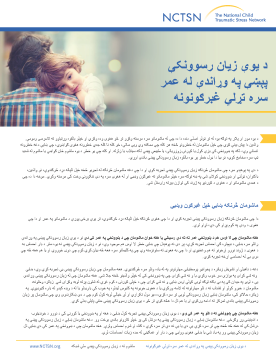
Age-Related Reactions to a Traumatic Event (in Pashto)
Describes how young children, school-age children, and adolescents react to traumatic events and offers suggestions on how parents and caregivers can help and support them.
The following resources on child trauma were developed by the NCTSN. To find a specific topic or resource, enter keywords in the search box, or filter by resource type, trauma type, language, or audience.

Describes how young children, school-age children, and adolescents react to traumatic events and offers suggestions on how parents and caregivers can help and support them.
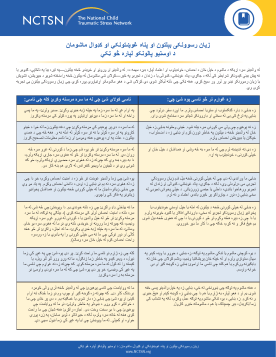
Provides tips for current caregivers and others to help address the needs of immigrant and refugee children who have experienced traumatic separation. The relationship with a parent is critical to a child’s sense of self, safety, and trust.
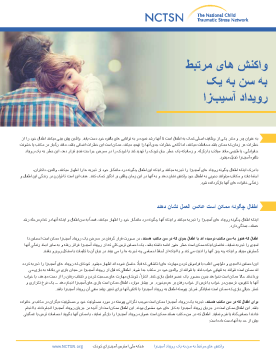
Describes how young children, school-age children, and adolescents react to traumatic events and offers suggestions on how parents and caregivers can help and support them.
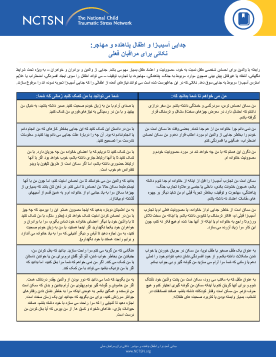
Provides tips for current caregivers and others to help address the needs of immigrant and refugee children who have experienced traumatic separation. The relationship with a parent is critical to a child’s sense of self, safety, and trust.

Offers a list of screening tools for identifying youth at risk for sex trafficking.
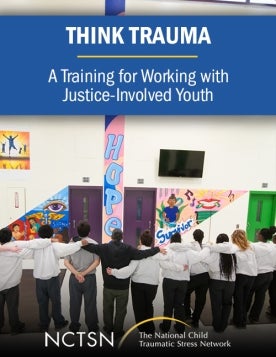
Is a virtual guide that walks through Making Think Trauma Stick: A Guide to Training and Implementation, developed by the National Child Traumatic Stress Network (NCTSN).
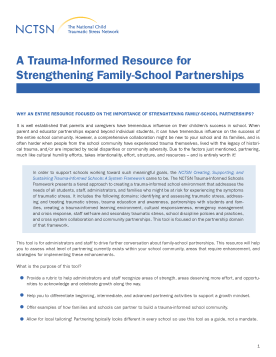
Helps schools assess what level of partnering currently exists within their school community, areas that require enhancement, and strategies for implementing these enhancements. This tool is for administrators and staff to drive further conversation about family-school partnerships.
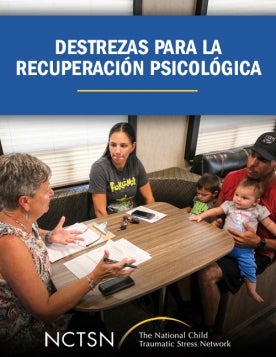
Tiene como objetivo ayudar a los sobrevivientes a adquirir destrezas para manejar la angustia y afrontar el estrés y la adversidad luego de un desastre. Este curso utiliza componentes para el tratamiento de salud mental que han demostrado ser útiles ante varias situaciones postraumáticas.
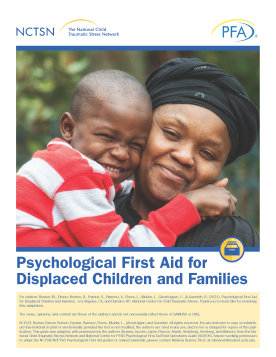
Is a evidence-informed flexible approach to assist displaced children and families immediately after arriving in the US.
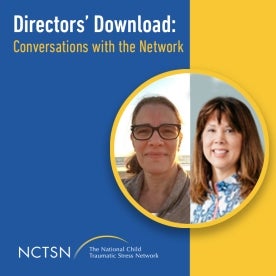
Features Alex Barker and Diane Lanni, the first family and young adult partners on the NCTSN Steering Committee. Alex and Diane share their journey towards their involvement in the NCTSN, their contributions to the Steering Committee, and lessons they have learned along the way.
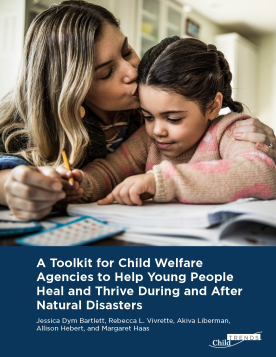
Helps child welfare agencies support children and youth during and after natural disasters. This toolkit is for child welfare staff, supervisors, and administrators who work with and on behalf of children, youth, and families who experience a natural disaster.
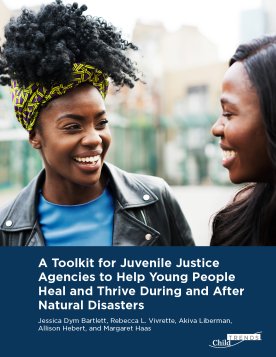
Helps juvenile justice agencies support children and youth during and after natural disasters. This toolkit is for juvenile justice staff, supervisors, and administrators who work with and on behalf of children, youth, and families who experience a natural disaster.